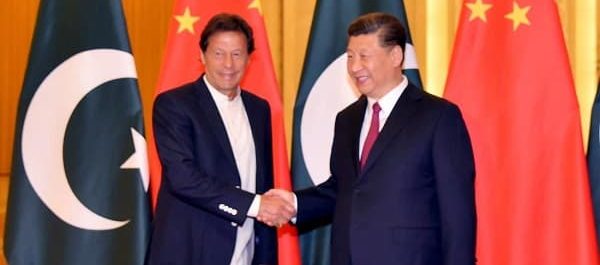Islamabad: Pakistan and China have entered the next stage of the China-Pakistan Economic Corridor (CPEC) as both sides signed a new free trade agreement (FTA) and memorandums of understanding (MoUs), a news source reported. Prime Minister (PM) Imran Khan concluded his four-day visit to China with these developments.
Read: Pak-China FTA Phase II to have safeguard mechanism
The second stage of CPEC focuses on industrial development, socioeconomic uplift, agriculture, and other newer sectors. It also calls for greater involvement of the private sector and boosting job creation.
Both countries signed a MoU for establishing the first Special Economic Zone (SEZ) in Rashakai, Khyber-Pakhtunkhwa (KP), which will consist of 20 factories. For this purpose, the China Road & Bridge Corporation and KP Economic Zones Development & Management Company signed the Rashakai Joint Venture and License Agreement.
For further stages, it is expected that China will collaborate with Pakistan to set up a heavy industry SEZ in Dhabeji, Sindh, along with a hi-tech SEZ in Islamabad. Additionally, Chinese investors are also signing joint ventures in a local SEZ setup in Faisalabad. PM Khan, in his meeting with Chinese PM Li Keqiang, expressed the hope that Chinese investment in SEZs will help Pakistan broaden its industrial base and diversify the export portfolio.
The China International Development Cooperation Agency and Pakistan’s Ministry of Planning, Development, & Reforms signed another important MoU. This second MoU includes the implementation of projects under the Joint Working Group of CPEC on socioeconomic development. The Chinese government will sponsor 27 projects related to health, human resource development, education, agriculture, poverty alleviation, and water & irrigation sectors. For this purpose, Beijing has agreed to spend USD 1 billion.
Read: Pakistan, China reach consensus on FTA-II
Meanwhile, the new FTA indicates that China will open 90% of its market for Pakistani goods, and Pakistan will share 65% of its market for Chinese exports. The two governments expect this measure to remedy the trade imbalance between the two countries.
Other agreements signed during the PM’s visit to China included establishing a dry port in Havelian, and paving the way for economic and technical cooperation in the field of marine sciences.








